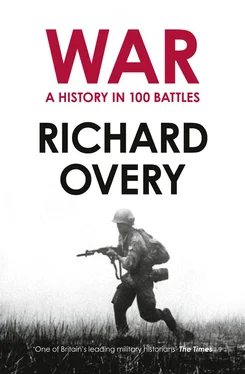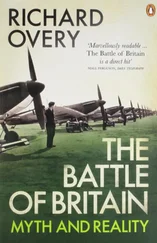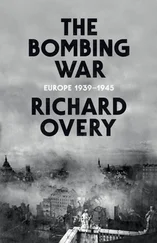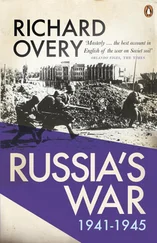Victory in battle is clearly likely to be exhilarating and soldiers and sailors indulge that victory in a variety of ways, though time and again they are evidently too exhausted, too damaged and too thirsty to do anything more than occupy the ground. Organized pursuit of a broken enemy, even if strategically sensible, is risky with exhausted men and in many famous cases failed to materialize. The aftermath of battle can be anti-climactic for the winners, particularly the wounded, who die later in droves after battles ancient or modern, their thankless task achieved at an awful cost. Nor is there any guarantee that once the fight is over, there will be food and water available.The Swedish victors at Breitenfeld had to wait until the following morning before they were given anything to eat or drink. The soldiers who survive know what they have done and will use it to weave their own personal narratives, heroic or otherwise. In earlier battles they were often rewarded at once to avert potential disaffection or mutiny and to maintain discipline among men now liberated from the tension of combat.
However exhilarating victory might be, at least for a bittersweet moment, battles seldom decided a war, and victory in one battle could quickly be tarnished by defeat in the next. Beaten soldiers or sailors returned home understanding the nature of their failure, even if glad to have survived. Japanese soldiers were encouraged to kill themselves rather than remain alive and dishonoured. One young conscript in the 1930s recorded in his diary that he was given a knife by his mother so that he could ritually disembowel himself if he was captured. The homecoming could be a mixed blessing even for the victors. The sailors who helped to defeat the Spanish Armada in 1588 were delivered to ports in England a few weeks later with no pay and no means of finding food or shelter save begging. Winning a battle could also be costly for the fortunate commander. The Roman general Flavius Aetius, who defeated Attila the Hun, was battered to death by his jealous emperor in person when he returned to Rome. The victor of Ain Jalut, where the Mongols were finally stopped in their tracks on their way to Egypt, was murdered by jealous officers on his way home. Battle is an event in its own right, with its own history and outcome, but what is made of the battle depends on the wider historical context, political as much as military. Winning in this sense really is only half the battle.
In some cases, battles have been used to serve as symbols or myths to endorse a particular political order or to encourage a shared cultural identity, and have soon assumed a historically abstract character, important for what they might mean for future generations and often surrounded by embellishments that turn the account from historical reality into a comfortable legend. For most ancient and early medieval battles, historians rely on accounts that are literary representations of what might have happened, largely devoid of detail and usually written long after the event. The eleventh-century epic French poem Chanson de Roland was based loosely on a battle that took place at Roncesvalles three centuries before, but its purpose by then was to enshrine notions of Christian nobility in French culture. The famous battle on the ice at Lake Peipus in 1242, where Alexander Nevsky drove back the German invader, was distorted by centuries of myth-making, and in the twentieth century it was adopted as a central motif of Soviet propaganda against the fascist enemy in the Second World War. The Battle of Britain and the Battle of the Somme have become central epic accounts in the search for a British identity, symbols of endurance and courage. Other battles are appropriated as foundation moments – the Battle of the Volturno River in 1860 cemented the unification of Italy; Marengo paved the way for Napoleon’s empire; Actium in 31 BCE became the founding battle of the Augustan age and the triumph of Octavian. There is also a history of how battles have been remembered once they are transformed over time into legend, distinct from the history of the battles themselves.
‘Battle’ as the key element of warfare for at least the past 4,000 years may nevertheless be dying out. The American belief that there is now a fundamental ‘Revolution in Military Affairs’ (RMA) – prompted by the new possibilities opened up by cyberwar and precise drone strikes – might make battle in a conventional sense obsolete. The exploitation of the ‘cognitive domain’ suggests that enemies could be subject to psychological pressures and threats that produce disorientation and uncertainty sufficient to obviate the need for actual killing. Perhaps the world is about to enter on one of those long periods of tranquillity detected by archaeologists when they examine the hidden record of prehistoric violence. Or then again, perhaps not.
In our current age, ‘leadership’ is taught as a classroom subject, as if everyone could become a leader if they paid enough attention and did their homework. The history of warfare through the ages should be enough to disabuse us of this illusion. The quality of leadership has varied widely in battle. The fact of command does not turn an indifferent officer into a true leader, any more than a leadership seminar today can turn someone into a leader of tomorrow. Indeed, it is possible for a leader to emerge quite independent of the formal military structures, as the success of Spartacus as leader of the slave rebellion against Rome, or the victory of the iconic Che Guevara in the Cuban Revolution, have both demonstrated. Successful military leaders are usually defined by their successes, but in many conflicts this means success on the battlefield, once, twice or many times, rather than success in war. Napoleon Bonaparte and Erich von Manstein are two such figures whose qualities of leadership are not in doubt, with an impressive list of battle successes, but both faced historical forces that doomed their efforts to eventual failure.
What, then, defines leadership in battle if it is not ultimate strategic or political triumph? This is a difficult question to answer because the nature of battlefield leadership has changed considerably through time. When rulers and generals led their men in person, leadership was based partly on the bravery and fighting skill they displayed as an example to their men. When a leader fell or was killed, the effect on those fighting around him could be disastrous, as it was in the medieval battle of Legnano when the German king, Frederick Barbarossa, fell from his horse in the fighting and disappeared from view. Leaders who ran risks were respected; those who sat prudently on a nearby hill or in their tent relied on lesser commanders to win the loyalty of their troops and sustain their will to fight. In modern wars, the leaders seldom shared the dangers of battle and could be remote from the action. Their skill lay in working out the operational strategy that would secure victory, and their qualities were managerial as well as physical. Even then, knowledge that the leader was there, in contact, was still important. When Napoleon retired hurriedly from the disastrous campaign in Russia in 1812, he doomed his remaining, hopeless troops.
The most distinguished battlefield leaders have been those who combined a grasp of operational reality, a willingness to be imaginative with new technology and tactics, a courage and confidence communicated to those around them, and a willingness to share the dangers of combat. When Alexander the Great went calmly to his tent to sleep on the night before the Battle of Gaugamela, his nervous officers were uncertain how to react. Alexander assured them that victory was certain and, according to the ancient accounts, slept soundly. The overwhelming majority of battles through recorded history suggest that soldiers and sailors fought on the day for their leader rather than for any great ideal, whether religious, political or national. This explains how fighters from very different ethnic or cultural or national communities, often pressed involuntarily into service, could still fight side-by-side against the common foe. The battlefield was a community all of its own in which leaders of whatever kind played a decisive part in holding that community together.
Читать дальше












